Search
Remove Ads
Advertisement
Summary 
Loading AI-generated summary based on World History Encyclopedia articles ...
Search Results
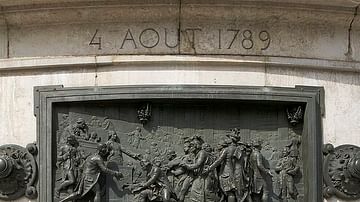
Image
The Abolition of Privileges, 4 August 1789
Bronze relief depicting the abolition of privileges before the August Decrees dismantled feudalism in France. Monument to the Republic, engraved by Leopold Morice, 1883.
Place de la République, Paris.
Photograph by Jebulon, April 2011.
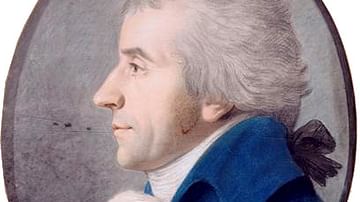
Definition
Jacques-Pierre Brissot
Jacques-Pierre Brissot de Warville (1754-1793) was a French journalist, abolitionist, and politician who played a prominent role in the French Revolution (1789-1799). A leader of the Girondins, a moderate political faction, Brissot was instrumental...

Definition
August Decrees
The decrees of 4 August 1789, also known as the August Decrees, were a set of 19 articles passed by the National Constituent Assembly during the French Revolution (1789-1799) which abolished feudalism in France and ended the tax exemption...

Definition
Mary Prince
Mary Prince (l. c. 1788 to c. 1833) was the first enslaved Black woman to publish an autobiography/slave narrative. Prince was illiterate but dictated her life story to the writer Susanna Strickland (l. 1803-1885), published in 1831 as The...
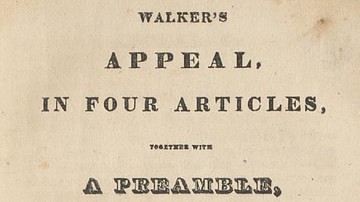
Article
David Walker's Appeal to the Coloured Citizens of the World
David Walker (l. c. 1796-1830) was an African American abolitionist writer best known for his 1829 work An Appeal to the Coloured Citizens of the World (also known The Appeal or Walker's Appeal) advocating for a united front in the abolition...
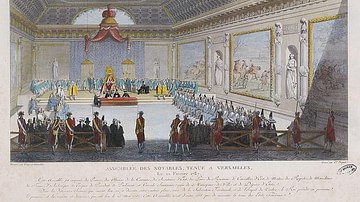
Definition
Assembly of Notables of 1787
The meeting of the Assembly of Notables in 1787 was a last-ditch effort by the ministers of King Louis XVI of France (r. 1774-1792) to fix the disastrous condition of French finances. The assembly failed to agree on a series of radical financial...
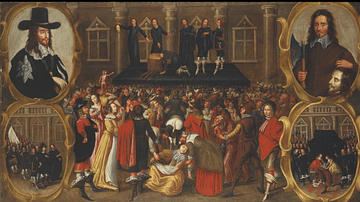
Article
Consequences of the English Civil Wars
The impact and consequences of the English Civil Wars (1642-1651) were many and far-reaching. Charles I of England (r. 1625-1649) was executed, and the monarchy was abolished. Oliver Cromwell (1599-1658) then headed the Republic as the Lord...

Definition
English Reformation
The English Reformation began with Henry VIII of England (r. 1509-1547 CE) and continued in stages over the rest of the 16th century CE. The process witnessed the break away from the Catholic Church headed by the Pope in Rome. The Protestant...

Definition
Peasants' Revolt
The Peasants' Revolt, also known as the Great Revolt, was a largely unsuccessful popular uprising in England in June 1381. The rebellion's leaders included Wat Tyler and they wanted massive social changes which included a removal of the poll...

Definition
Gabriel's Rebellion
Gabriel's Rebellion (30 August 1800) was a carefully planned slave revolt in Virginia orchestrated by the literate slave blacksmith Gabriel (l. c. 1776-1800), property of one Thomas Prosser, and so referred to as Gabriel Prosser. The plans...